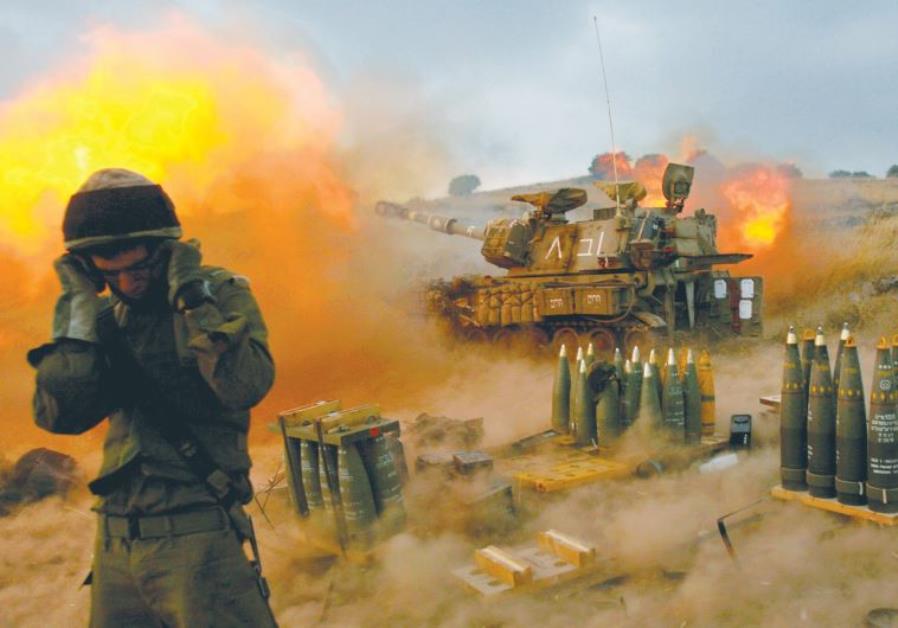Israel preparing partial evacuation in case of conflict with Lebanon
Jerusalem Post/May 28, 2017
A senior Israeli official said that the Israeli assessment is that neither Hezbollah nor Israel wants a war, but “there could be escalation or miscalculation on both sides.”
A senior Israeli military official told The Media Line that Israel has prepared a partial evacuation plan for areas close to the border with Lebanon in case of a renewed round of fighting with pro-Iranian Hezbollah guerrillas. He confirmed media reports that Hezbollah has more than 100,000 rockets that can cover all of Israel, but said “90 percent” of them are short-range rockets, with a range of about 28 miles.
“We know that (Hezbollah Secretary General Hassan) Nasrallah wants to harm Israeli civilians and he is using psychological warfare against our citizens,” he said in an exclusive briefing with The Media Line. “But we also believe that Nasrallah is acting out of weakness because he has lost about 1500 fighters in Syria.”
The condition of the briefing was that no identifying titles of the officer or where the briefing took place be published.
Hezbollah has been fighting on behalf of Syrian President Bashar al-Assad in Syria for the past six years, and is credited, along with Russia and Iran, for helping to turn the tide of the war in favor of Assad. But Nasrallah has come under criticism from some in Lebanon, who say that the fighters should be defending Lebanon, not Syria.
Nasrallah has recently up his rhetoric against Israel, saying that “Israel should think a million times before it goes to war with Lebanon,” and that “Hezbollah is ready for any threat.” He has also threatened to hit Israel’s nuclear facilities in Dimona.
Israel has stepped up its own psychological warfare. Earlier this month, Nasrallah gave a speech on the anniversary of the death of military commander Mustafa Badreddine killed in Syria last year. The Lebanese group has said Israel is responsible for the assassination – which Israel neither confirmed nor denied.
During Nasrallah’s recent speech, thousands of Lebanese citizens received voice and text messages saying that Nasrallah ordered Baddreddine killed. Iranian media said that Israel was behind those messages.
The senior Israeli official said that the Israeli assessment is that neither Hezbollah nor Israel wants a war, but “there could be escalation or miscalculation on both sides.”
The last large-scale conflict between Israel and Hezbollah was in 2006, after Hezbollah launched a cross-border raid that killed three Israeli soldiers and captured two others. It later became clear that both of those soldiers were killed during their capture. During the 34 days of fighting, Hezbollah fired more than 4,000 rockets on Israeli communities, while Israel bombarded targets in southern Lebanon. The month of fighting killed an estimated 1,200 Lebanese, most of them civilians, as well as 44 Israeli civilians and 121 Israeli soldiers.
The Israeli airstrikes caused massive destruction to residential areas in south Lebanon and south of Beirut — areas where Hezbollah maintains a presence and has large support among the predominantly Shi’ite population. Israel also flattened entire blocs of residential apartments and destroyed roads, bridges, ports and power plants across the country.
Since then, Israel has expanded its missile defense system, adding David’s Sling, meant to stop medium-range missiles. It joins Iron Dome, which has been successful in stopping hundreds of short-range rockets from the Gaza Strip, and the Arrow system, meant for long-range rockets.
Besides an evacuation plan, Israel also has a detailed plan in the case of an earthquake or other natural disaster.
“We are waiting for an earthquake,” he said. “Historically, there is an earthquake every 80 – 100 years and the last one was in 1927.”
He said the disaster plan depends partly on what time of day a potential earthquake occurs. If it is during the day, for example, the first priority will be in getting to schools and saving children. He says that an earthquake has the potential to kill thousands of people.
Press reports say the government is preparing for a scenario that forecasts the collapse of 30,000 buildings, 7,000 people dead, and 170,000 left without shelter. The key to saving lives is reaching them in time, so Israel’s Home Front Command maintains contacts with municipal officials in Israel’s towns and cities.
The official said the chances of finding people alive go from 70 percent in the first 24 hours down to 30 percent after 48 hours. He said that Israeli is preparing a plan to rescue people trapped from an earthquake even in areas where cellphone reception fails.






















